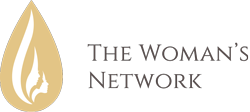The COVID-19 epidemic has forced many firms to review their workplace policies, specifically ones that deal with remote work. Some businesses have shifted to a fully remote model, while others still maintain a physical office and hire remote employees for certain tasks or roles. The flexible arrangement benefits both the employers and their remote employees. The former helps save real estate and space costs, attracts talent from all over the globe and reduces geographical limitations while the latter manages professional and personal obligations.
To transfer teams from a traditional office to a remote workspace requires more than just a good internet connection and file sharing apps. It is essential to plan for a smooth transition, which includes onboarding, training, and setting up metrics for success. It is also crucial to provide the right equipment and tools for remote workers.
For instance, it’s essential to set clear expectations regarding virtual communications, and avoid saturating employees with messages. Managers should instead schedule regular check-ins, and provide guidelines for calls made via virtual channels. They should also provide tools to monitor performance and workflow. For instance the productivity tracking application like Trello can help managers keep track of their teams’ performance.
It’s also important to search for the best remote work jobs to match your expertise and experience. For example management of projects and client interaction previously hinged on in-person interactions but now software solutions allow remote work for these tasks. Similarly, salespeople can use online platforms to interact with clients and manage their pipelines from far away. Accounting, recruitment, human resource management and operations are a few other professions that have been able to adapt to working remotely.
www.allsmarthomecompany.com/introduction-to-business-budget-control-methods/

